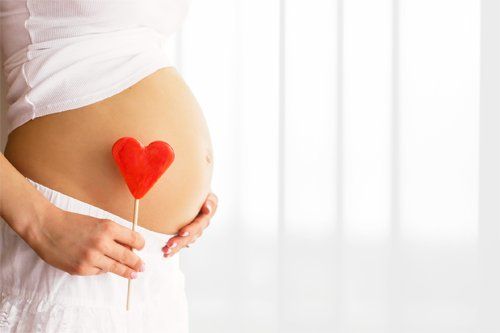A History of Hope and Healing
Blog Post
Understanding Pregnancy Loss: Emotions, Acceptance, and Understanding
Admin • May 21, 2018
Miscarriage or stillbirth affects 10 to 15
percent
of all pregnancies. Whether it happens days after a positive pregnancy test or months into the pregnancy, this type of loss is devastating and can cause mental trauma for the mother-to-be. Even though the pain from pregnancy loss may seem unbearable at times, it's possible to get through this tough time.
If you or a loved one has experienced pregnancy loss, then understanding the realities of this unfortunate experience and learning about what you can do to overcome the resulting emotions is the first step to moving on. Before giving up on your parenting dream, take a look at some of the most common questions that women have about losing a pregnancy.
Why Did the Loss Happen?
There are many different reasons why a woman could lose a baby. Miscarriages (losses that happen prior to 20 weeks) can happen for totally unknown reasons. Even though this is frustrating for the parents, it doesn't always mean that something is wrong, many miscarriages are a one-time occurrence.
In the event that the doctor is able to diagnose a reason, possible medical causes of miscarriage include reproductive conditions such as polycystic ovary syndrome, incompetent cervix, a bacterial infection, or an immunologic disorder. Pregnancy loss after 20 weeks (stillbirth) may result from fetal genetic abnormalities, impaired fetal growth, or an unknown cause.
Keep in mind, the doctor may not be able to provide a definitive answer as to why the loss happened. This doesn't mean that your or your loved one has somehow caused the loss or is in any way responsible. Accepting the loss and realizing that no one is at fault is a major step towards emotional recovery.
What Emotional Symptoms Accompany Pregnancy Loss?
The emotional symptoms that accompany pregnancy loss depend on the individual woman. Someone who has miscarried can experience a range of emotions and psychological after-effects. There is no right or wrong way to go through this experience.
With that in mind, if you or your loved one has extreme negative emotions or her psychological state gets in the way of normal everyday life, then outside help from a professional is needed.
Some women may feel shocked or get stuck in a sense of denial. However, you or your loved one will likely to move on to other emotions, such as anger or guilt, following the initial reaction.
Along with the sadness that you might expect, you may also feel anger or even anxiety. These may, or may not, come with physical symptoms. Typically, the physical symptoms are outgrowths from you or your loved one’s emotional state and not separate health concerns.
These symptoms often include difficulty sleeping, concentration problems, change in appetite, weight changes, or fatigue. Always consult with a doctor if you are experiencing any of these symptoms.
Are There Ways to Deal With Pregnancy Loss?
Whether you or your loved one is already on the road to acceptance or far from it, a professional counselor can help. While talking to friends and family can provide a sense of comfort that you or your loved one may need, a trained counselor has the expertise and experience to help you or your loved one handle the powerful emotions that come with pregnancy loss.
Even though plenty of parents go on to have joyful, successful pregnancy after miscarriage or stillbirth, coming to terms with the initial loss before trying to conceive again is advisable. Getting professional help gives you or your loved one the tools to grieve the loss, come to a place of acceptance and move through this challenging time in a safe, healthy way.
Do you, or your loved one, need help processing a pregnancy loss? Contact our team at Heritage Mental Health Clinic
for more information.
Share
Tweet
Share
Mail
Heritage Mental Health Clinic
2110 SW Belle, Suite B, Topeka, KS 66614
Phone:
785-272-5566
Fax:
785-272-5967
Content, including images, displayed on this website is protected by copyright laws. Downloading, republication, retransmission or reproduction of content on this website is strictly prohibited. Terms of Use
| Privacy Policy

